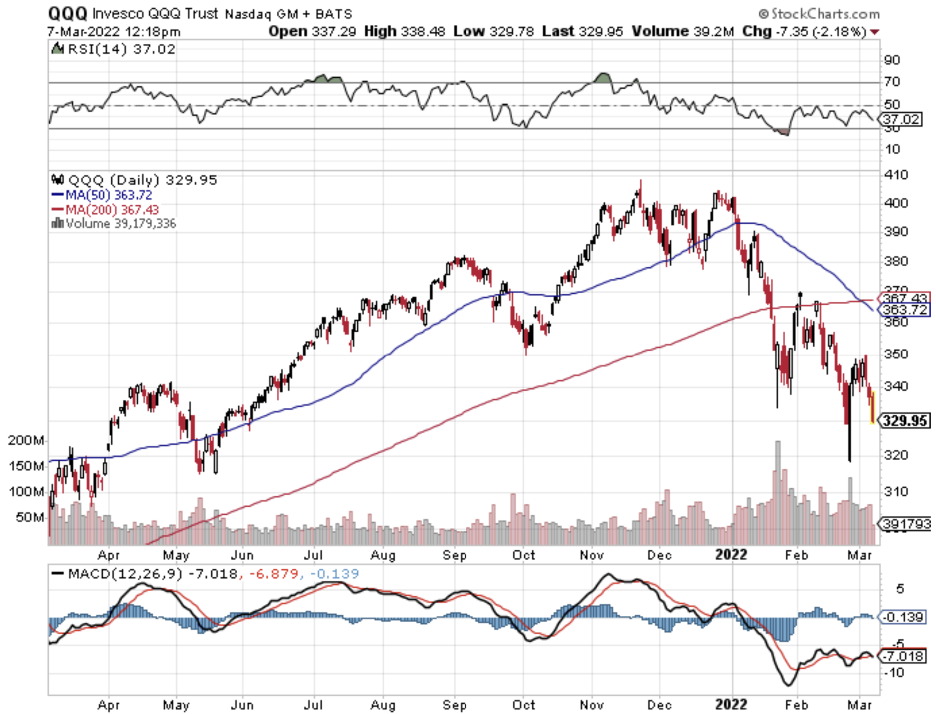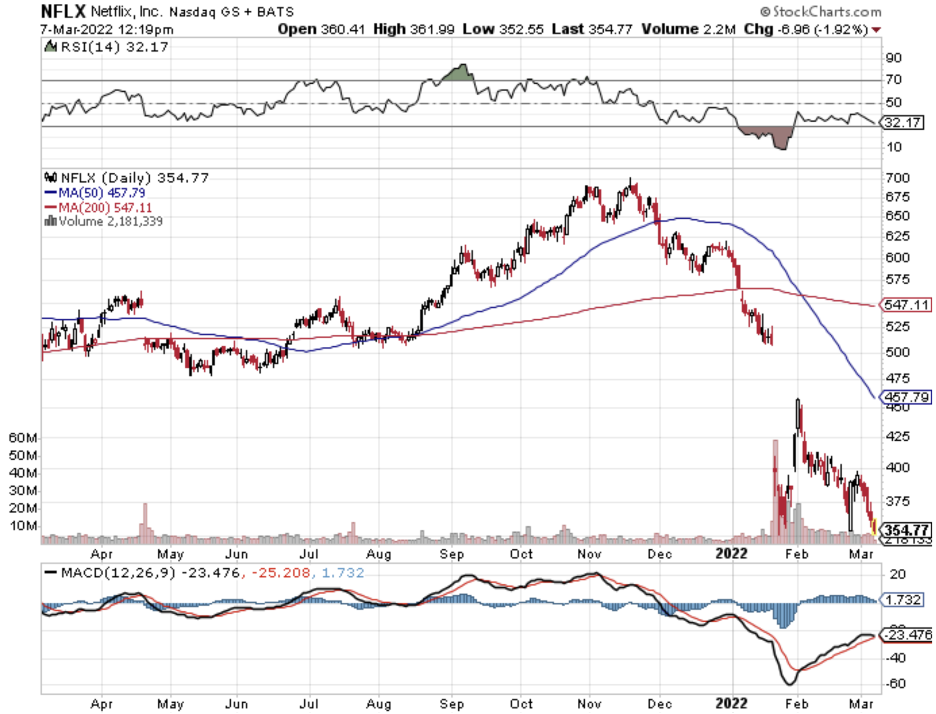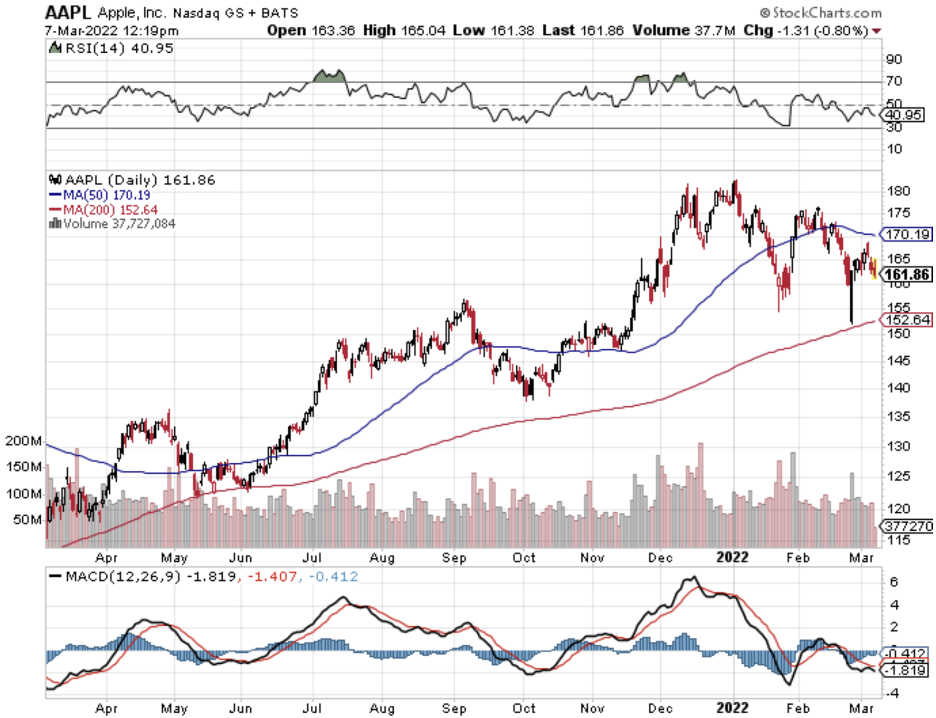Short Term Pain for Silicon Valley Tech
The American tech sector has largely been overshadowed by the events across the world.
Many would question why that would even matter.
What does that even have to do with an American smartphone or devices that permeate our society?
We deal with American tech stocks for this newsletter, and not with moral outrage or foreign policy matters.
So we stay in our lane and deal with various exogenous stocks that come our way as it relates to the Nasdaq (QQQ).
I don’t get to pick these shocks – they come in fits and starts and in different sizes.
The end of omicron was almost to the point of visualization, but we roll into yet another macro crisis of many groups’ makings.
Tech doesn’t operate in a vacuum, and politics, more often than I would like to admit, sometimes do overlap a great deal.
The world has changed dramatically in the past 14 days and the knock-on effects mean that American tech companies and their trillion dollars business models are pulling out of Russia, a country with a population close to 150 million, in droves.
It is what it is, and life moves on.
Netflix (NFLX) has been in operation in Russia since 2016 and the decision to vacate Russian business means they will lose around 1 million subscribers.
Most likely the worst tech company to work for right now in the world must be EPAM Systems (EPAM).
The internal chaos going on mainly stems from the 58,000 employees, with 14,000 of them in Ukraine and more than 18,000 staff in Belarus and Russia, according to company filings with the U.S. Securities and Exchange Commission.
EPAM’s stock is down 74% YTD in 2022 and is a stock that epitomizes the situation in Eastern Europe right now.
When workers refuse to work with each other, it’s hard to imagine that much gets done at all.
And this is just the tip of the iceberg.
The American tech withdrawals encompass all shapes and sizes.
Apple and Microsoft both said no bueno to selling products in Russia.
Game maker EA pulled the plug as well.
Google and Twitter have suspended advertising in Russia.
It’s a terrible time to monetize a YouTube channel in Russia because Google won’t pay you for it.
Likewise, Snap (SNAP) has pulled its marketing dollars from Russia too.
Another sonic boom hit Russian tech when Airbnb room-rental service suspended all operations in Russia and Belarus and has said its nonprofit subsidiary will offer free temporary housing to 100,000 Ukrainian refugees.
It's also waived host and guest fees for bookings in Ukraine, as people worldwide use Airbnb as a way to provide income directly to Ukrainians.
Adobe is halting sales of new Adobe products and services in Russia. In addition to making sure its products and services are not being used by sanctioned entities, Adobe is also cutting Russian government-controlled media outlets off from its cloud services.
What is emerging as quite black and white is that American technology companies hoping to apply their business model in autocratic states doesn’t integrate as well as first thought.
The weak rule of law along with all-powerful demagogue leaders make it hard to sustain any sort of business carve-out for the long term.
Eventually, many American companies are forced to abandon their ambitions in these marginal states.
The next question a tech investor must ask is will the American tech sector follow the lead from Russia and pull out from China.
Obviously, this has major implications for companies like Apple, Micron, and a handful of American tech companies that are entrenched in the Chinese economy and society.
Many people think this will blow over and tech will come back front and center, but short-term, this is highly negative for American tech stocks.
The more this situation drags out, the higher risk American tech is more involved in this mess from a different gateway.
The tech portfolio has been outright short recently and it was the perfect call to sell the dead cat bounce in growth tech like Teladoc (TDOC) and ARKK funds (ARKK).







